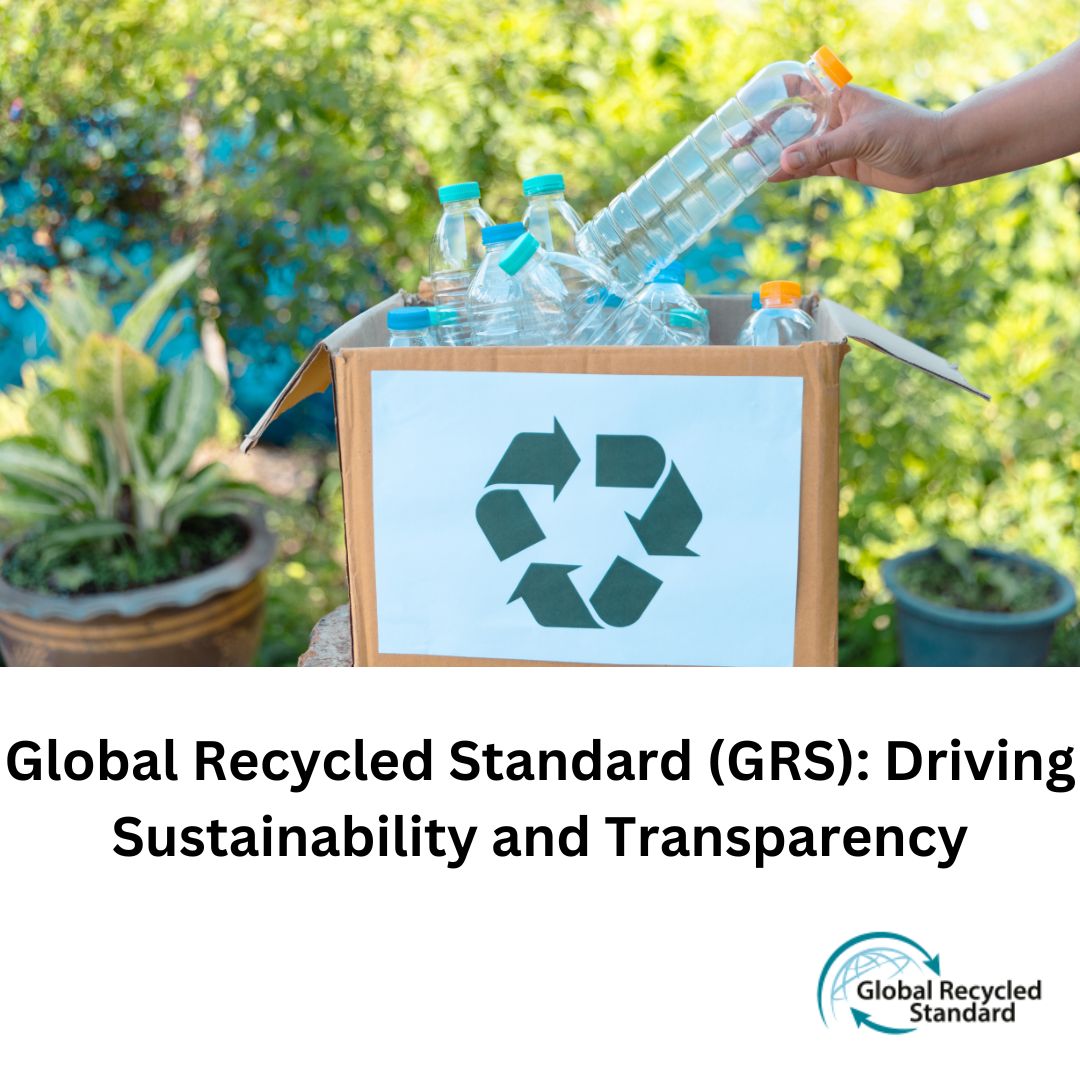Blog Details

Global Recycled Standard (GRS): Driving Sustainability and Transparency
In today’s world, where sustainability has become a necessity rather than a choice, businesses are under increasing pressure to adopt eco-friendly practices. Among the many certifications that promote sustainable manufacturing and recycling, the Global Recycled Standard (GRS) stands out as one of the most trusted frameworks. GRS is not just about using recycled materials; it’s about maintaining transparency, traceability, and social responsibility throughout the supply chain.
This blog dives deep into what the GRS is, its key principles, benefits, certification process, and why companies should prioritize it to meet global sustainability goals.
What is the Global Recycled Standard (GRS)?
The Global Recycled Standard (GRS) is an international, voluntary, full-product standard that sets requirements for third-party certification of recycled content, chain of custody, social and environmental practices, and chemical restrictions. Managed by Textile Exchange, GRS is designed to meet the needs of companies seeking to verify the recycled content of their products and ensure responsible production. GRS applies to industries like textiles, packaging, plastics, home décor, and more, ensuring products not only use recycled inputs but are also manufactured in environmentally and socially responsible ways.
Objectives of GRS
- → Promoting recycled material usage in products to reduce waste and reliance on virgin resources.
- → Ensuring environmentally friendly manufacturing processes throughout the production chain.
- → Encouraging social responsibility by safeguarding workers’ rights and workplace safety.
- → Providing transparency and credibility in the recycling supply chain.
- → Helping brands meet global sustainability and circular economy goals.
Key Features of GRS
- Recycled Content Verification: Ensures that the claimed percentage of recycled content in the final product is accurate and verifiable.
- Chain of Custody: Uses the Content Claim Standard (CCS) to track materials from the recycler to the final seller, ensuring full traceability.
- Environmental Practices: Sets strict guidelines to minimize environmental impacts such as water pollution, energy usage, and waste generation during production.
- Social Responsibility: Requires certified facilities to maintain ethical labor practices, ensuring safe working conditions and no forced or child labor.
- Chemical Restrictions: Prohibits the use of harmful chemicals, promoting safer and more sustainable production processes.
Industries Benefiting from GRS
- → Apparel and Fashion: For garments made from recycled fibers.
- → Home Furnishings: Rugs, bedding, and upholstery with recycled materials.
- → Plastics Industry: For packaging and plastic products derived from recycled polymers.
- → Automotive Industry: Car interiors and accessories using recycled inputs.
- → Footwear and Accessories: Sustainable shoes, bags, and belts made with recycled materials.
- → Also applicable to fabrics, yarns, accessories, clothing, leather, toys, metal products, packaging, and more.
Benefits of Global Recycled Standard Certification
- → ✅ Enhances Brand Credibility: Provides verified proof of a company’s sustainability claims, building trust with customers.
- → ✅ Promotes Environmental Sustainability: By emphasizing recycled inputs, GRS helps reduce landfill waste, conserve natural resources, and lower carbon emissions.
- → ✅ Ensures Supply Chain Transparency: Every stage of the supply chain follows standardized processes, offering traceability and accountability.
- → ✅ Expands Market Opportunities: Certified products attract eco-conscious consumers and open doors to global markets that prioritize sustainable products.
- → ✅ Supports Corporate Social Responsibility (CSR): Demonstrates commitment to ethical and sustainable practices.
The GRS Certification Process
- → Application Submission: Submit an application to an accredited certification body, agree on project scope, timeline, and quote.
- → Documentation Review: Initial documentation is reviewed to verify percentage of recycled content and supply chain information.
- → On-site Audit: Auditors inspect facilities to evaluate environmental, chemical, and social compliance.
- → Certification Decision: If facility meets GRS requirements, certification is granted and a scope certificate is issued—typically valid for one year.
- → Annual Renewal: Certification must be renewed annually through follow-up audits to maintain compliance.
Challenges in Implementing GRS
- → Ensuring accurate documentation and traceability across complex supply chains.
- → Upgrading production processes to meet environmental and chemical restrictions.
- → Managing certification costs and audits, especially for small businesses.
However, with expert guidance and careful planning, these challenges can be efficiently addressed, and the long-term benefits far outweigh the initial hurdles.
Future of GRS in the Sustainability Movement
With the global push toward a circular economy, the role of GRS is growing significantly. Governments, brands, and consumers are prioritizing recycling and reducing waste. GRS certification acts as a trusted benchmark, ensuring that genuine sustainability practices are adopted and verified, and promoting positive environmental and social impacts.
Why Choose Ascent Inspecta for GRS Certification
When it comes to obtaining GRS certification, partnering with an experienced consultancy like Ascent Inspecta ensures a smooth, hassle-free process. Here’s why you should choose Ascent Inspecta:
- → Expertise in sustainability and recycling certifications.
- → Guidance from application to final audit.
- → Support in documentation and supply chain compliance.
- → Experienced auditors and industry specialists.
- → Proven track record with global brands and manufacturers.
With Ascent Inspecta, your journey toward GRS certification becomes efficient, transparent, and stress-free.
Conclusion
The Global Recycled Standard (GRS) is more than just a certification; it’s a commitment to sustainable growth, ethical manufacturing, and environmental responsibility. By adopting GRS, businesses contribute to reducing waste and gain a competitive edge. Achieving GRS certification signals to customers and stakeholders that sustainability and transparency are valued. Partnering with experts like Ascent Inspecta makes this process seamless, ensuring your brand stands out as a leader in eco-conscious practices.
Leave a Comment
We would love to hear your thoughts! Please leave your comment below:
